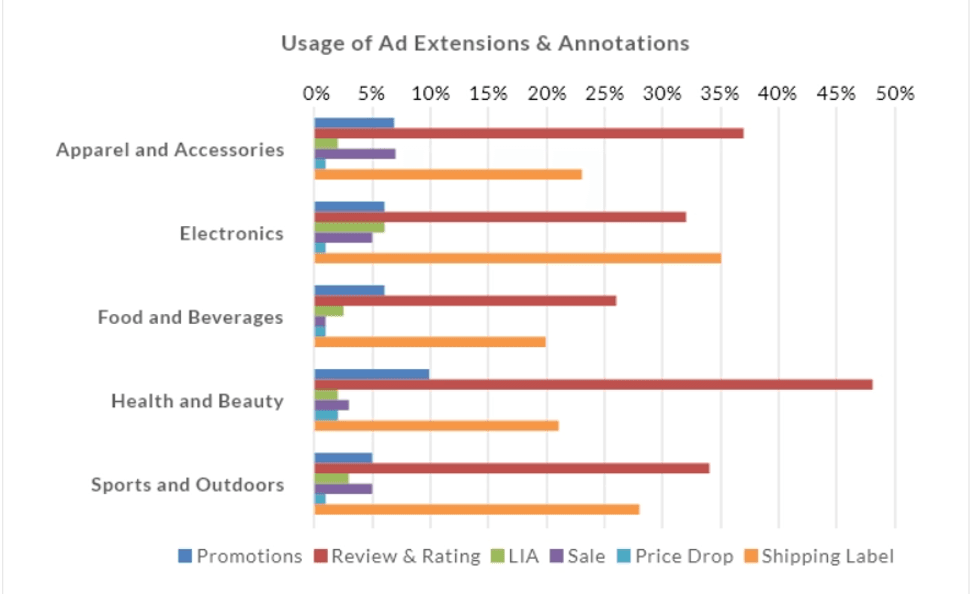Enhancing eCommerce with Browser Extensions: Strategies for Online Retailers


Share this post








Staying competitive requires businesses to leverage innovative tools and technologies, like browser extensions. eCommerce browser extensions provide convenience and savings, empowering savvy consumers to uncover fantastic deals, eliminate ads, and quickly access product details.
This article will demonstrate how your eCommerce business can effectively capitalize on the growing popularity of browser extension development. Discover the advantages of utilizing these tools, especially in light of upcoming regulations on third-party data usage.
Online retailers generally use browser add-ons to boost sales via a seamless online shopping journey. Honey, Rakuten, and Amazon Assistant, among others, provide features such as price comparisons, discount coupons, and cashback offers, which enhance the shopping experience and help customers save money.
The GrowByData graph showcases the implementation of Google Shopping extensions and annotations in five distinct categories. It highlights the prevalent utilization of features such as reviews and ratings, along with shipping labels. However, it also indicates that local inventory ads (LIA) and price drop extensions are less commonly used.

Let’s overview some of the most popular browser extension utilizations in eCommerce.
To generate targeted product recommendations, add-ons use various algorithms and techniques to analyze the user's browsing and purchase history, among other data points. These algorithms take into account factors such as the user's search queries, the products they have viewed, the products they have purchased, and their browsing behavior on the eCommerce site.
eCommerce browser extensions also leverage ML algorithms, which use complex data modeling techniques to identify patterns and trends in the user's behavior. Some tools also take into account external factors, such as the user's location, the time of day, and seasonal trends. This allows them to provide recommendations that are not only highly personalized but also relevant to the user's current context.
One of the key advantages of eCommerce browser extensions is that they enable customers to stay up-to-date with the latest discounts and offers from their favorite online stores. Users receive instant notifications on the latest promotions, which helps them make informed decisions about their purchases. Additionally, browser extensions allow customers to keep tabs on their favorite products and notify them when the prices drop.
Moreover, extensions can track the customer's browsing history and recommend products that match their interests. This feature helps customers save time searching for products they want and enables them to access exciting deals instantly.
By leveraging advanced ML algorithms, eCommerce browser extensions analyze customers' search and purchase history, as well as their browsing behavior, to provide personalized recommendations tailored to their unique preferences. This capability results in a more personalized shopping experience that feels natural and intuitive to the customer, making them feel like the extension truly understands their preferences and needs.
These browser extensions are not just limited to product recommendations. They can also offer real-time alerts and notifications when a better deal or pricing opportunity presents itself, or when an item that the customer has shown interest in goes on sale. This means that customers can receive real-time advice and recommendations to make informed purchase decisions, which ultimately leads to better shopping outcomes.
Finding the best deal online can be cumbersome and time-consuming as products are sold across multiple retail websites. eCommerce browser extensions facilitate the browsing experience for online shoppers via business process automation. Once installed, the tool automatically scans the product you are viewing on a retailer's website and then checks the prices of the same product across multiple other stores.
The extensions compare the prices of products by analyzing different factors like shipping, tax, and other fees. It then gives the user the total cost of the product, including the shipping and other fees, which helps the user make a more informed decision. Some eCommerce browser extensions offer features such as price tracking, which allows the user to create a watchlist of products they are interested in. The extensions then notify the user when a deal or a price drop for the product is available.
One way eCommerce browser extensions can help retailers is by providing real-time support to customers. Many extensions, such as LiveChat, provide built-in chat functionality that allows customers to ask questions and get help from support representatives as they shop. This can be a huge benefit for shoppers, who may have questions about product details, shipping options, or returns policies. By providing this kind of instant support, retailers can improve the shopping experience and increase the likelihood of a sale.
Here are some of the benefits of eCommerce with browser extension: